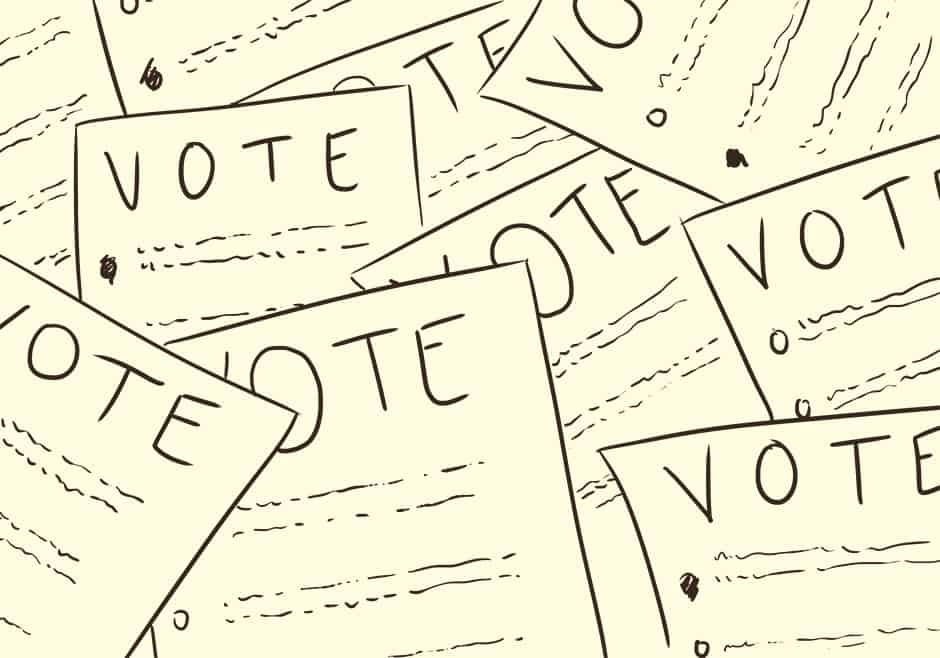What Canadian elections lack in pomp and circumstance, they make up for in agility and electoral drama. From what I know of Canadian elections, rarely do they pass without some discourse over the legitimacy of how we elect our representatives. Neither provincial nor federal elections are exempt from this discourse and the most recent topic of discussion is Québec.
On October 3, François Legault, the incumbent premier, and his party, the Coalition Avenir Québec (CAQ), won a stunning majority in the National Assembly of Quebec in the province’s general election. While the party’s victory in securing 90 out of 125 seats was impressive, the numbers fail to add up to a fair victory. The CAQ won 72 per cent of the National Assembly on 41 per cent of the total vote.
The next four largest parties in Québec received a combined 57.3 per cent of the vote that only amounted to a measly 35 seats, which is equivalent to 28 per cent of the National Assembly altogether. Among these four parties, the Conservative Party of Quebec received 12.9 per cent of the total vote but failed to win any seats.
You may be asking, what impact does Québec’s electoral practices have on U of T students? Simply put, the electoral failure in Québec is far from an isolated case, as we see the same phenomenon in Ontario. In the provincial elections earlier this year, Ontario Premier Doug Ford’s Progressive Conservatives won two thirds of the seats at Queen’s Park with 83 seats out of a possible 124. However, they only won 41 per cent of the total vote. On the other hand, in the 2021 federal election, the Liberal Party was 10 seats short of a majority in the House and even lost the popular vote to the Conservatives, with only 32.6 per cent compared to the Conservatives’ 33.7 per cent.
We keep seeing this broken system over and over again, in which Canadians get governments they didn’t vote for and don’t want in power.
The first-past-the-post system that Canada uses across all elections is inherently unfair. In this system, candidates do not get elected by the majority of their area’s voters. Instead, officials are elected once they have more votes than their competitors. While this may sound democratic, the reality is that a candidate in a four-candidate race could be elected with only 26 per cent of the popular vote. This is hardly fair.
While this system occasionally results in a candidate receiving a majority of the votes in their riding, that is much rarer than it should be. According to Élections Québec, only 46 of the 125 seats in the election earlier this month were won by a candidate who received more than 50 per cent of the vote in their riding.
Elected officials should be chosen by a majority of those they represent, not by a portion of it. A system where plurality of the vote results in a winner is undemocratic. This winner-takes-all model leaves people behind and silences their voices within their own communities. Continuing this system keeps governments that the people don’t want in power.
Although Doug Ford’s education cuts and Bill 124 — the law that restricts public employees to a one per cent raise in annual salary — have not been received well, the broken electoral system keeps us from electing a government that can develop better policies than Ford’s government.
In Québec, the Legault government’s use of Bill 21, which prohibits individuals from wearing religious symbols at work, and Bill 96, which reinforces the use of French throughout the province, clearly violates charter rights. However, the Québec electoral system allows Legault’s majority in the provincial assembly to use the notwithstanding clause to override the constitutional rights of minority populations in the province.
The only way to get rid of the undemocratic nature of these governments and their policies is to reform our electoral system.
We got close to changing our electoral practices with Prime Minister Justin Trudeau. In his 2015 campaign, Trudeau campaigned for electoral reform for the same reasons I have outlined. However, the election reform promises were unclear and solutions were abandoned because they were too difficult to implement.
But is that fair to Canadians? We deserve good governments, but it cannot happen when the solution is deemed “too hard” and not worth the political capital. Good governments do not ignore millions of voters. Democracy should mean that the people in power have been elected by the majority of the population.
The only way forward is a mixed-member proportional system where we have two types of MPs — some who represent the constituencies and others who represent Canadians and their political opinions.
This way, people who are political minorities in their areas still have a voice, like a Conservative voter in downtown Toronto or a Liberal voter in Saskatchewan. They may not have their vote represented locally, but it will be represented nationally. Canada being such a vast geographical area means that political opinion may vary drastically across the country. Hence, elections should acknowledge this by systematically embedding both regional and political differences into the system.
We can no longer carry on with these broken electoral systems. The political landscape needs to be changed. Canadians deserve better.
Lucas Sousa is a fourth-year student at UTSG.


